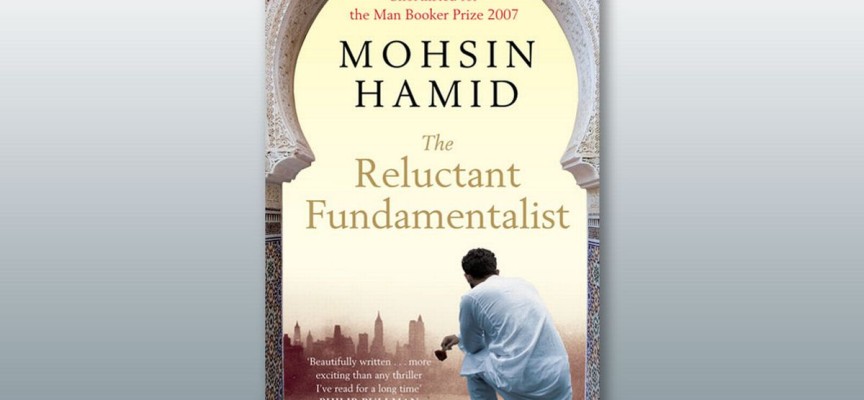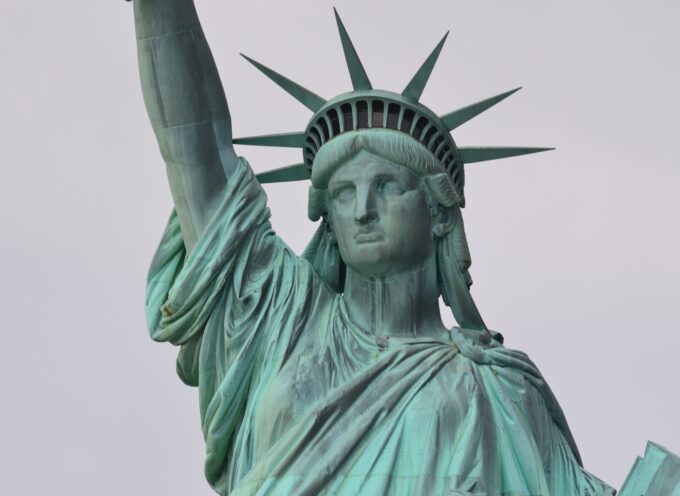With the rise of Al-Qaeda and ISIS, and with the increase in terror attacks on the United States and its European allies, Americans are still sorting out why it is that people would hate “us” that much. The answer to this question is complex and multi-faceted, and varies from “hater” to “hater.” But the complexity of the motivations should not keep us from trying to gain some understanding—however limited—of the situation.
One attempt to shed light on the situation is a slim little novel, The Reluctant Fundamentalist, published a few years ago by Mohsin Hamid. Because it is written by a Pakistani who was educated in the United States, and because it is a well-written and brief work of fiction, I recommend The Reluctant Fundamentalist as a way of gaining insight into some people’s perception of the United States.
The Reluctant Fundamentalist tells the story of a young Pakistani’s initial infatuation with America and his ensuing disillusionment. It is an allegory meant to instruct Americans about the global community’s perceptions of their country.
Hamid’s hero is Changez, a young Pakistani from Lahore. Hamid frames the story by means of an encounter in Lahore between the hero Changez, and an American stranger. Changez recognizes the “American-ness” of a stranger in his city, invites him to have a cup of hot tea, and proceeds to tell him the story of his life. The conversation occurs a few years after 9/11.
Changez tells how he graduated from Princeton and immediately was hired by Underwood Samson (read “U.S.”), a NY firm of business analysts that specializes in taking over failed businesses. He was quite infatuated with America until 9/11. In the wake of that ugly day, he slowly but surely became disillusioned with America.
In addition to the xenophobic paranoia Changez witnesses, he speaks of the uniquely American sense of superiority. He notes that his fellow students at Princeton were, for the most part, from wealthy American families and that this seemed to give them license to be brusque with, and condescending toward, men and women who were the age of their parents. For him this was unthinkable.
Changez began to view the American elite as a unique class of fundamentalist, belonging to the right wing of the Capitalist religion. It was this religious fundamentalism that, in part, motivated numerous interventions around the globe: “I had always resented,” he writes, “the manner in which America conducted itself in the world; your country’s constant interference in the affairs of others was insufferable. Vietnam, Korea…the Middle East, and now Afghanistan: in each of the major conflicts and standoffs that ringed my mother continent of Asia, America played a central role.” Even “aid” and “sanctions” were sometimes in the service of this fundamentalism: Indeed, “finance was a primary means by which the American empire exercised its power.”
The young Pakistani eventually realizes that he has become a janissary. (Janissaries were captured Christian boys who were trained and employed as mercenaries against their own people, in the service of the Ottoman empire.) “I spent that night considering what I had become. There really could be no doubt: I was a modern-day janissary, a servant of the American empire at a time when it was invading a country with a kinship to mine and was perhaps even colluding to ensure that my own country faced the threat of war. Of course I was struggling! Of course I felt torn! I had thrown in my lot with the men of Underwood Samson, with the officers of the empire, when all along I was predisposed to feel compassion for those…whose lives the empire thought nothing of overturning for its own gain.”
Throughout the story, Changez narrates the twists and turns of his love affair with a young Princeton grad, Erica (think “Am-Erica”). Though she likes Changez, ultimately Erica has not recovered from the death (by lung cancer) of a former boyfriend, Chris. Her mourning becomes obsessive and eventually neurotic. She is submitted to an institution, and eventually disappears. Hamid uses her neurotic obsession with her past to surface America’s own “dangerous nostalgia” for her own past, as well as Changez’ homesickness for Lahore.
At the end of the novel, we find that Changez has returned to Lahore, grown a beard, and otherwise returned to his socio-cultural roots in Pakistan. Ultimately, Hamid is trying to say that America has her own version of fundamentalism (based on a worship of the dollar) and that the United States is in need of some, ahem, changez.
I will limit my review of the book to a couple of points. The first is that Hamid’s narrative is a quick and enjoyable read that provides insight into the perception many have of the United States of America. Just as Hamid portrayed “Underwood Samson” as a firm that specialized in hostile takeovers of weak and failing companies, there are many who view the United States as a country that specializes in hostile interventions and takeovers of weaker countries. Just as Hamid’s “Underwood Samson” was motivated by the Dollar and did not care if its takeovers ruined the lives of those caught in the middle, so many view the United States as being motivated by the Dollar (rather than by benevolence or the desire to promote freedom), not caring if its interventions and takeovers harm innocent bystanders. While Hamid’s allegory cannot even begin to do justice to the complexities of global politics, and in some ways actually does injustice, it is a decent vehicle for helping his readership understand perceptions of the United States.
Second, Hamid’s novel reminds us that God has brought the nations to our doorstep. The United States is home to hundreds of thousands of fellow image-bearers who are immigrants from such countries as Pakistan, India, or North Africa. We are told that most immigrants are never invited into the home of an American and, in light of this, we have a divine opportunity to rectify the situation.
Third, The Reluctant Fundamentalist is one of scores of books dealing with the problems and challenges that confront the global community in the 21st century. As a general rule, these sources deal with the proximate causes of our problems and challenges, but rarely with the ultimate cause. Although the proximate cause might be Islamic nor Capitalist fundamentalisms, the ultimate cause is the Fall which leaves humanity worshiping idols rather than the one true and living God. This idolatry not only enslaves the human heart, but corrupts and misdirects all of our social, cultural, and political doings.
Book: The Reluctant Fundamentalist (2007)
Author: Mohsin Hamid
Region: South Asia (Pakistan)
Genre: Fiction
Length: 191 pp.
Difficulty: Easy
Subscribe
Never miss a post! Have all new posts delivered straight to your inbox.








A brilliant review of a brilliant book. I read an excerpt from it a year or two ago and thought, “Wow!”
We Americans are riding for a fall. We bomb a couple of Syrian towns and kill well over 100 innocent civilians. But this is barely discussed in our media, where the big story now is whether poor Melania committed plagiarism. And how about Taylor Swift, Kanye West and the Kardashians? (Look the other way, folks, at the bright shiny objects!) The dead Syrians are evidently just “collateral damage” (a Pentagonese term I particularly detest) and hardly worth thinking about.
God will indeed judge us for this attitude. Your final comments echo Rudyard Kipling’s famous poem, “Recessional,” which was targeted at the British Empire in its prime, and ends:
If, drunk with sight of power, we loose
Wild tongues that have not Thee in awe,
Such boastings as the Gentiles use,
Or lesser breeds without the Law—
Lord God of Hosts, be with us yet,
Lest we forget—lest we forget!
For heathen heart that puts her trust
In reeking tube and iron shard,
All valiant dust that builds on dust,
And guarding calls not Thee to guard,
For frantic boast and foolish word-
Thy Mercy on Thy People, Lord![
Roger, thank you!